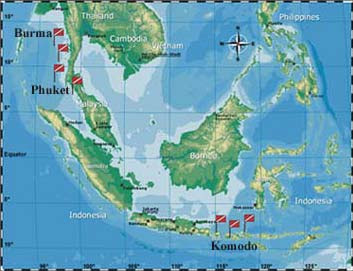
Around 178 million people in South Asia out of the 1.028 billion practice open defecation and are exposed to severe safety and health risks as well as adding to environmental pollution.Women and children bear the major brumt of the crisis.About 500000 children die every year due to disease related to poor sanitation and hygiene and many more fall seriously ill, compromisin their future potential and overburderning the halth services.In addition to death and disease burden and its subsquent costs on the national economy, poor sanitaion is polluting environment and compromising dignity the very essence of human beings.
To address this challenge and find collective solution of these undignified conditions, countries in South Asia gathered in Bangladesh in 2003 under the umbrella of South Asian conference on sanitaion. In the last eight years hundreds of high government officials relevant ministers, sector actors and civil society met three times in Dhaka, Islamabad and Delhi in 2003, 2006 and 2008 respectively to find common solutions.This year more than 400 people from across South Asia met in Colombo to review the sanitation situation and progress made against previous commitments. Three previous conference have made a range of political and financial commitments including adopting people centred, community led and gender sensetive and demand driven approach, elimination of open defecation and other unhygienic practices.
No doubts, this eight years grive by SACOSAN to turn the trend and achieve millenium development goals has achieved several successes including recognitions of access to safe drinking water and sanitations as a basic right, raising sanitation profile at the regional level, formulation of national policies, strategies and plans, increase in sanitation coverage, broadening partnership. However, there are several critical areas committed above but have not been rally translated into concrete actions. This indicates the failure of the governance system,its responsiveness to the people's demand and a system accountable to the people.With the current rate of progress, the sanitation will not be achieved until 2028 too little and too late. Following are theimportant governance challenges if addressed might expedite the progress and lift millions of South Asians from undignified conditions and put them on the path of development, poverty reduction and prosperity.
Despite political commitment for establishing performance monitoring system, indicators are yet to be deided against which information collected provides the guide for better decision making. Improving sanitation information system to avoid any statistical disprepancies is also an essential element of strengthening monitoring and accountability. Due to the unavailability of clearly defined national performance monitoring mechanism, keeping track of the difference between building and use of services is quite difficult, so is the difficulty in sustaning the services without robust minitoring and clearly defined operations and maintenance roles and responsibilities.
Prioritizing sanitation including increasing the finance for sanitation and their better utilization, has gained recognition. There has been some increase in sector financing but in comparision to other sector and magnitude of crisis, it is still inadequate. Better coordination, broad based alliance and partnership and clear institutional mechanisms are the other areas repeatedly promosed. Better institutional arrangement, which is able to coordinate the function and build a broas based alliance for sanitation movement, and programming is central to success.Despite the commitments ans institutional importance, countries in the region are still strugling to determine the clear institutional home of sanitation.In very first SACOSAN people centered approach was recognized as sanitation is not just building toilets but it is the use of facilities as well as behavioral change.Centrally designed and delivered programs run a risk of remaining non functional and lack of ownership by the community and thereby unsustainable.giving real meaning to participation is still an area which requires urgent action for going beyond words to meaning.This calls for a revamping of the institutional mechanism that will allow for proactive community participation.
Total sanitation has been delayed in South Asia by a lack of focus development and particularly on people centered sanitation programs.Improved governances is central to address the challenge.The South Asian people want to see a governance system where decisions are informed by evidence and institutions, and decision makers connect to the people, where information flows freely, the poor get response and justice and equity are made values. If these governance principles are followed it may offer a better future for the South Asian children.
1 comments:
Wow this is a very amzazing blog and very informative I learned something good reading this post just like I learned from the money blog about finincial wellbeing
Post a Comment